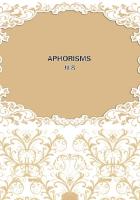If they had to relinquish that summer the advantage of the bracing climate the young man couldn't but suspect this failure of the cup when at their very lips to have been the effect of a rude jostle of his own.This had represented his first blow-out, as he called it, with his patrons; his first successful attempt - though there was little other success about it - to bring them to a consideration of his impossible position.As the ostensible eve of a costly journey the moment had struck him as favourable to an earnest protest, the presentation of an ultimatum.Ridiculous as it sounded, he had never yet been able to compass an uninterrupted private interview with the elder pair or with either of them singly.They were always flanked by their elder children, and poor Pemberton usually had his own little charge at his side.He was conscious of its being a house in which the surface of one's delicacy got rather smudged; nevertheless he had preserved the bloom of his scruple against announcing to Mr.and Mrs.Moreen with publicity that he shouldn't be able to go on longer without a little money.He was still ****** enough to suppose Ulick and Paula and Amy might not know that since his arrival he had only had a hundred and forty francs; and he was magnanimous enough to wish not to compromise their parents in their eyes.Mr.Moreen now listened to him, as he listened to every one and to every thing, like a man of the world, and seemed to appeal to him - though not of course too grossly - to try and be a little more of one himself.Pemberton recognised in fact the importance of the character - from the advantage it gave Mr.Moreen.He was not even confused or embarrassed, whereas the young man in his service was more so than there was any reason for.
Neither was he surprised - at least any more than a gentleman had to be who freely confessed himself a little shocked - though not perhaps strictly at Pemberton.
"We must go into this, mustn't we, dear?" he said to his wife.He assured his young friend that the matter should have his very best attention; and he melted into space as elusively as if, at the door, he were taking an inevitable but deprecatory precedence.
When, the next moment, Pemberton found himself alone with Mrs.
Moreen it was to hear her say "I see, I see" - stroking the roundness of her chin and looking as if she were only hesitating between a dozen easy remedies.If they didn't make their push Mr.
Moreen could at least disappear for several days.During his absence his wife took up the subject again spontaneously, but her contribution to it was merely that she had thought all the while they were getting on so beautifully.Pemberton's reply to this revelation was that unless they immediately put down something on account he would leave them on the spot and for ever.He knew she would wonder how he would get away, and for a moment expected her to enquire.She didn't, for which he was almost grateful to her, so little was he in a position to tell.
"You won't, you KNOW you won't - you're too interested," she said.
"You are interested, you know you are, you dear kind man!" She laughed with almost condemnatory archness, as if it were a reproach - though she wouldn't insist; and flirted a soiled pocket-handkerchief at him.
Pemberton's mind was fully made up to take his step the following week.This would give him time to get an answer to a letter he had despatched to England.If he did in the event nothing of the sort - that is if he stayed another year and then went away only for three months - it was not merely because before the answer to his letter came (most unsatisfactory when it did arrive) Mr.Moreen generously counted out to him, and again with the sacrifice to "form" of a marked man of the world, three hundred francs in elegant ringing gold.He was irritated to find that Mrs.Moreen was right, that he couldn't at the pinch bear to leave the child.
This stood out clearer for the very reason that, the night of his desperate appeal to his patrons, he had seen fully for the first time where he was.Wasn't it another proof of the success with which those patrons practised their arts that they had managed to avert for so long the illuminating flash? It descended on our friend with a breadth of effect which perhaps would have struck a spectator as comical, after he had returned to his little servile room, which looked into a close court where a bare dirty opposite wall took, with the sound of shrill clatter, the reflexion of lighted back windows.He had simply given himself away to a band of adventurers.The idea, the word itself, wore a romantic horror for him - he had always lived on such safe lines.Later it assumed a more interesting, almost a soothing, sense: it pointed a moral, and Pemberton could enjoy a moral.The Moreens were adventurers not merely because they didn't pay their debts, because they lived on society, but because their whole view of life, dim and confused and instinctive, like that of clever colour-blind animals, was speculative and rapacious and mean.Oh they were "respectable,"and that only made them more immondes.The young man's analysis, while he brooded, put it at last very simply - they were adventurers because they were toadies and snobs.That was the completest account of them - it was the law of their being.Even when this truth became vivid to their ingenious inmate he remained unconscious of how much his mind had been prepared for it by the extraordinary little boy who had now become such a complication in his life.Much less could he then calculate on the information he was still to owe the extraordinary little boy.














